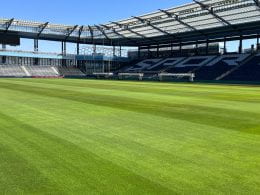
Children’s Mercy Park in Kansas City, KS is quite unique. Northbridge bermudagrass comprises the soccer field used for Sporting KC, and the first home game is on March 11th. In the past, it has been typical for those hosting games in early spring, on which bermudagrass is the focus, to overseed with a cool-season grass, such as perennial ryegrass in the fall. This enhances fall and spring color and helps protect the underlying bermudagrass. However, overseeding with perennial ryegrass also results in significant competition for the bermudagrass to succeed. Children’s Mercy Park had a different strategy for enhancing early spring color and promoting growth during cool weather.
How is it that bermudagrass is fully green in Kansas in February? Casey Montgomery, Director of Turf Operations for Sporting KC, had a subsurface heat system installed in the field. The heat is produced through electricity – ribbons are buried at 8 inches deep and run 6 inches apart through the field. From late autumn until early February, soil temperature will be at 50 F (at 8 inch depth). Temperature is increased to 70+ F starting in February.
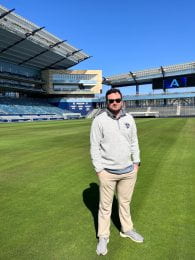
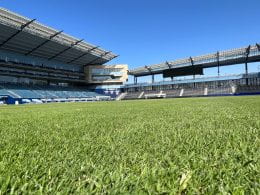
In addition, the field is frequently covered when necessary, and also receives “grow lights” to enhance photosynthesis in early spring. All of these are impressive strategies for stimulating growth and health of bermudagrass. However, soil heating systems and supplemental lighting aren’t factors that most managers overseeing bermudagrass sporting fields would be able to include in their operating budget. This unique approach in enhancing bermudagrass green up and growth on professional sports turf is quite impressive!
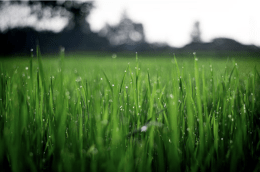

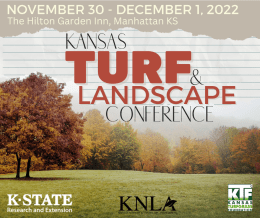 The
The 
 Want to improve your online presence by upgrading your new and social media strategies? Then the 2022 Insight Summit conference is for you! Learn how to collect analytics and which measurements matter, create compelling and engaging visual content to share online, and increase engagement with your audience and potential customers. Details and Registration –
Want to improve your online presence by upgrading your new and social media strategies? Then the 2022 Insight Summit conference is for you! Learn how to collect analytics and which measurements matter, create compelling and engaging visual content to share online, and increase engagement with your audience and potential customers. Details and Registration – 

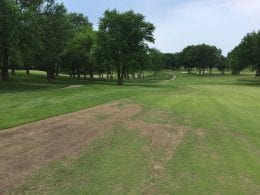
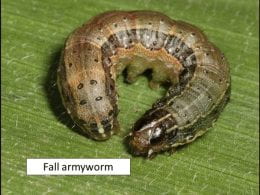 Fall of 2021 created significant issues with fall armyworms. Since that event, Dr. Raymond Cloyd has updated information on biology and control of this insect. It does not overwinter in Kansas, so it’s presence is dependent upon movement of moths from the south to our region. See the details here:
Fall of 2021 created significant issues with fall armyworms. Since that event, Dr. Raymond Cloyd has updated information on biology and control of this insect. It does not overwinter in Kansas, so it’s presence is dependent upon movement of moths from the south to our region. See the details here:
